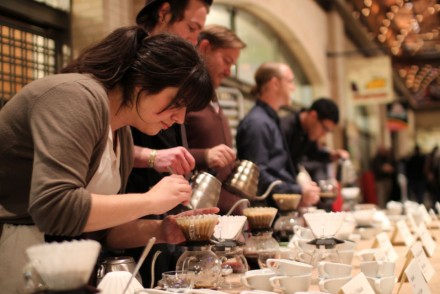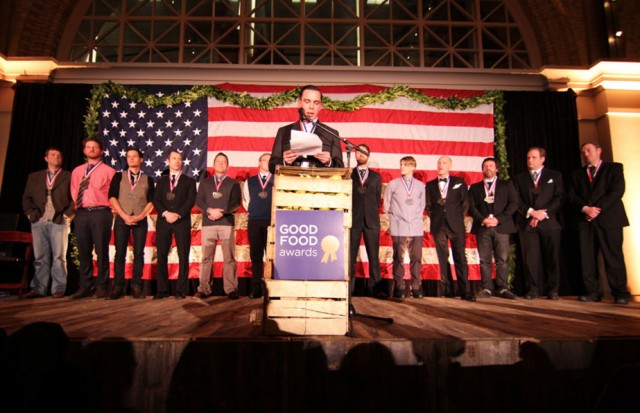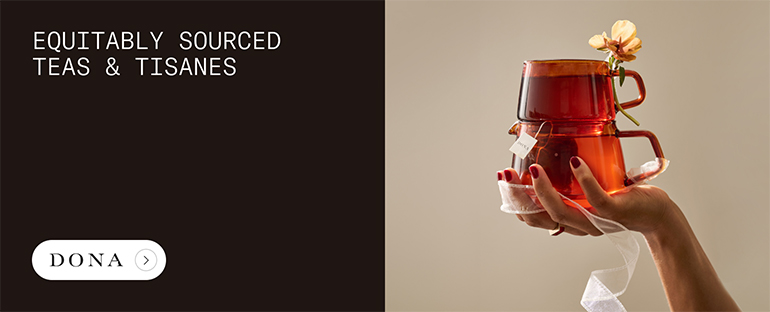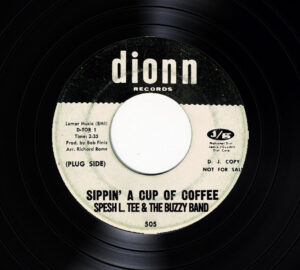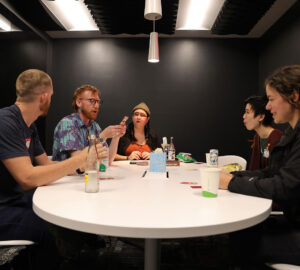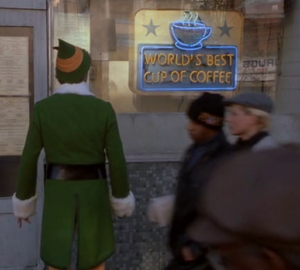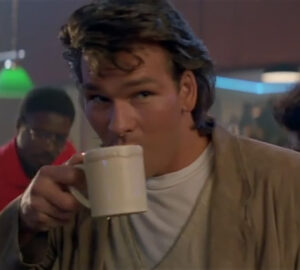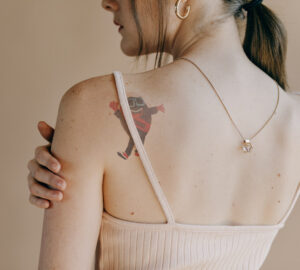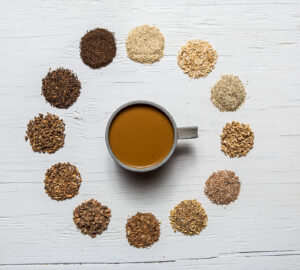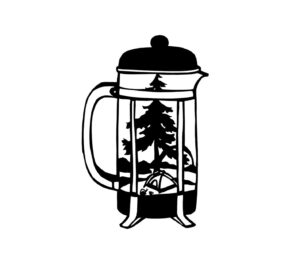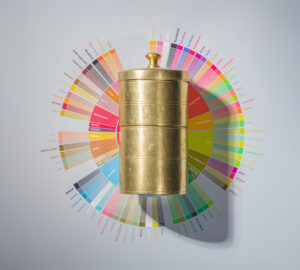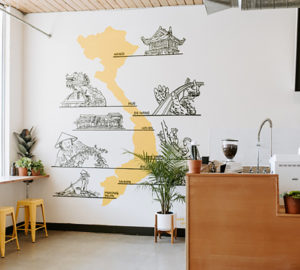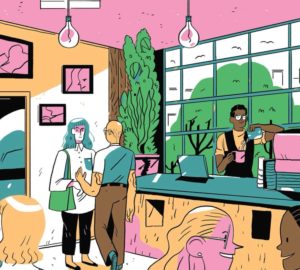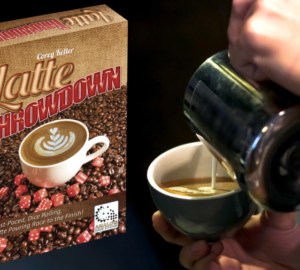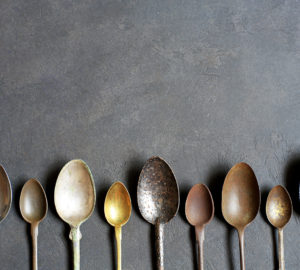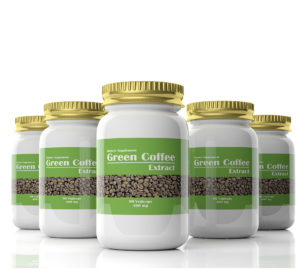The Good Food Awards have announced their third year of winning products – cheeses, beer, spirits, wine, charcuterie, chocolate, confections, preserves, pickles, and coffee. This year, over 160 roasters submitted coffee and sixteen walked away with GFA medals, plus given honorarium during the GFA Gala at the Ferry Building in San Francisco.
Your 2013 Good Food Award Winners in the coffee category:
Flying Goat Coffee (California)
Ethiopia: Sidama – Wottuna Boltuma
Intelligentsia Coffee & Tea (California)
Kenya: Nyeri District, Iraini, Gikanda Cooperative – Kangocho
Verve Coffee Roasters (California)
Panama: Boquete, Chiriqui – Elida Estate Green-Tip Gesha
Ethiopia: Yirgacheffe, Birhanu – Birhanu Bali Jilo
Panther Coffee (Florida)
Colombia: El Higuerón, Huila – Finca El Ventilador
1000 Faces Coffee (Georgia)
Ethiopia: Shakiso – Mora Mora
Evans Brothers Coffee (Idaho)
Ethiopia: Yirgacheffe
Intelligentsia Coffee & Tea (Illinois)
Kenya: Nyeri District, Iraini, Gikanda Cooperative – Gichathaini
PT’s Coffee Roasting Co. (Kansas)
Ethiopia: Gera District – Nanno Challa Heirloom
Gimme! Coffee (New York)
Colombia: Líbano, Finca San Luis – La Gloria
Joe Bean Coffee Roasters (New York)
Nicaragua: Jinotega – Don Roger
Joe New York (New York)
Ethiopia: Illubabor – Camp Cooperative
Case Coffee Roasters (Oregon)
Kenya: Nyeri, Gaturiri Cooperative – Peaberry
Heart Roasters (Oregon)
Kenya: Aberdares Mountains, Ndumberi
Ethiopia: Yukro
Portland Roasting Coffee (Oregon)
Ethiopia: Sidamo
Cuvee Coffee (Texas)
El Salvador: Ahuachapán, El Molino – Witness Project Fall
Kickapoo Coffee (Wisconsin)
Ethiopia: Yirgacheffe – Haru Cooperative
A complete list of all Good Food Awards coffee finalists can be found here.
According to sources, Verve Coffee Roasters had the highest scoring coffee among them, with their stunning Panama: Boquete, Chiriqui – Elida Estate Green-Tip Gesha. As representatives of the roasters received their medals and took the stage, Verve co-owner Colby Barr took the pear-crate podium to speak on behalf of all the winners of the coffee category. We’ve transcribed his speech in its entirety:
I have to follow up spirits and beer so it’s tough. Hello, my name is Colby Barr, and I’m a co-owner and green coffee buyer at Verve Coffee Roasters here in the Bay Area in Santa Cruz, California and it’s my true honor to be speaking to you tonight on behalf of the coffee category with all these… gentlemen – there are ladies in coffee, I swear. I’d like to say thanks to the Seedling Project for putting on the Good Food Awards and all the vendors and guests and my business partner Ryan O’Donovan and the Verve team, and of course, our beloved host Alice Waters.
You know, it’s funny, I didn’t grow up in coffee, but I grew up on a pear farm, so presenting this speech on a pear podium is a little serendipitous it’s like my dad saying, “Never forget.” (Laughter)
You know, they say are two types of people in this world – seekers of truth and seekers of wealth. Now I’m sure that most every vendor in here are the speakers of truth camp. Probably didn’t start your company with the goal of making millions of dollars – probably didn’t even had a business plan. You were only focused on the product and for the love of it. I know that’s how we started Verve.
It’s been an evolutionary five years since we’ve started Verve and I’ve what I grown to learn and why I think the Good Food Awards is really important and what we all do as producers is the idea that good food is good business. The problem is that there seems to be a little bit of a stigma floating around that to have a good business means bad quality or ethics or rather that in order to have quality or ethics we must sacrifice good business. There was even an article in SF Magazine this last year titled the “Artisans Dilemma” which probably many of you read that proposed the question: can they cash in without selling out? And I think that depends on a lot of things among them what the definition of “cash in” and “sell out” are, but either way I fundamentally disagree with the notion that quality, ethics, and business are all mutually exclusive. I think you can have – (interrupted by applause)
I think you can have great foods and great businesses. I think you can have high ethics and deliver impact while remaining profitable – in fact I think it’s our obligation to do so. We need to pay our farmers and ranchers well for our raw products – and well to our staff – and we need to make sure we’re healthy so we can keep doing it. It doesn’t really help anybody if we’re aren’t around to keep telling the story of good food. So we ultimately need to make sure our businesses are sound and we’re asking the right price for our products and this is a sensitive subject in the U.S. Actually, people don’t pay enough for food in this country – not even close. In fact, in the top sixteen industrialized nations on Earth we pay by far the least. And according to the USDA Economic Research service only six and a half percent of our income actually goes to food which is only half of that group’s average. In fact, both Italy and France spend around fourteen percent of their income around food and I hear they have pretty good food. I think people should pay more for food. (Applause)
Growing up the son of a farmer just a couple hours north of here this always hits home for me. And I believe the best way to get people to pay more for food is by delivering quality. And that’s what’s so amazing about this group – all of us here – is that we all share the same passion for quality. It’s difficult to try and convince people to pay more for food or guilting them into it but if they really fall in love with it price takes a back seat. Here’s where quality has a tremendous value.
And this is why the Good Food Awards is really important – because it is focused on communicating that story and message to the public. You know, it’s interesting, what I learned most from my degree in environmental studies in college is that the two most important aspects of that field are environmental ethics and environmental economics. You need to do what’s right because it’s just that – and then use economics as the lever to push it.
So in closing, as seekers of truth here – we all already have deep passion for quality – that’s why we’re all here. But if we want to make good foods sustainable and impactful and keep telling our stories we also need to make it a good business. And that’s something we should all be proud of. Thank you very much. (Applause)
After the awards were announced the audience trickled down from the second floor banquet hall to the building’s marketplace hallway below. There, volunteers from each category served small bites of award winning foods and beverages. Spirits were flowing, charcuterie was chomped on, and a cadre of Bay Area baristas diligently poured Kalitas of the fourteen available coffees into notNeutral ceramic ware for curious passer-bys.
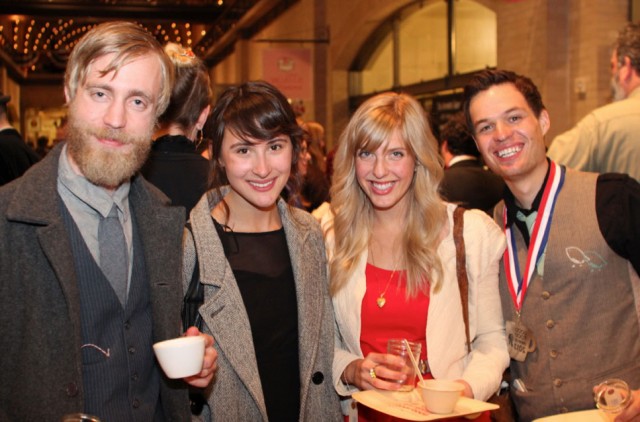
Judges of the coffee category were in attendance, like Ecco founder and San Francisco Chronicle blogger Andrew Barnett, Coffee Shrub green buyer Aleco Chigounis, Coffee Common co-founder Brent Fortune, Heart Roasters owner and roaster Wille Yliuoma, and vice president of coffee at Intelligentsia Coffee Geoff Watts.
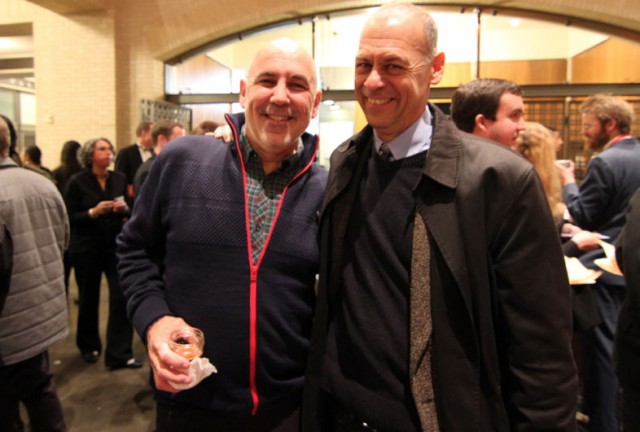
Congratulations to all the winners and finalists!











